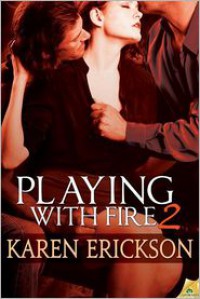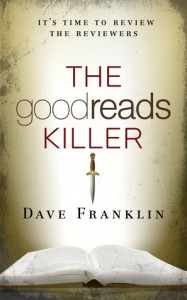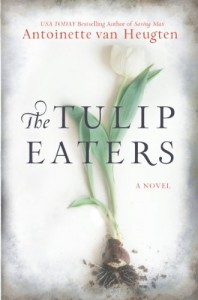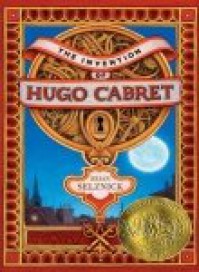Second Bookses
There Shouldn't Be a Breast Cancer Awareness Month

In some ways, I'm glad that Emily Helck's story has gone viral via Mashable. Because, you know, it's October, and sometimes the whole breast cancer awareness thing needs a human face on it instead of just pink slapped all over everything.
Unfortunately, Emily's story isn't the first. And it won't be the last. Before her came Kerry Mansfield's Chronicle of a Mastectomy, which is one of the most gut-punching photo essays I've seen. And there was Adriene Hughes' (the name is just a coincidence; I found her today when I was hunting links for Jen Merendino and Kerry Mansfield's stories) documentation of her 2004 battle with breast cancer. And the most painful one: Angelo Merendino's documentation of his wife's fight -- and death. Angelo is a real-life Cam for me. I hate that there are countless Cams out there.
Because the pink on everything isn't doing everything.
There are still women, like the Adrienne in my book, who are diagnosed pre-menopause, and there are a lot of young women out there who don't think they need to do breast self-exams and be vigilant. My mother had pre-menopausal breast cancer. I have a friend who is fighting now, who is my age, and has been fighting for years. And I lost a college friend who left behind young children when she died in her early 30s.
Breast cancer rates are on the rise in black women. Yes. On the rise. Going up. An increasing number of black women will be counted among the deaths this year, simply because awareness and screening are not as prevalent among Cultures Other Than White. The pink campaign is not targeting African-American women. Or Latinas. And we need to change that.
Men get breast cancer, too. And in that sea of pink, are you seeing any outreach toward educating men about signs, symptoms, and screening? I'm not either.
And lastly, for every Angelina Jolie, who could not only afford the genetic screening (which is thousands of dollars and not covered by many insurance companies) but also prophylactic mastectomy, there are those of us who still don't have insurance. I'm lucky in that my community has a program for low-income, uninsured women to get screened. More resources can be found online.
Breast cancer is very real to me, and very personal. It's probably why I used it as the subject for my novel. But I'm even more passionate about things like getting health insurance for everyone, something that shouldn't be on the table in the current ridiculousness going on in Washington. And in getting "awareness" to the point where everyone is aware, not only white women. And a future in which my October no longer turns pink.
A Lot Like Life

So I'm in the middle of reading Rainbow Rowell's FANGIRL.
It's a little creepy how well she gets inside a fangirl's head. In fact, the first thing I highlighted in my little Kindle was this quote:
“Why do we write fiction?” Professor Piper asked.
Cath looked down at her notebook.
To disappear.
I think I've talked ad nauseum about my first foray into fan fiction. In high school and college, I rolled my eyes at the fan fiction authors. Especially when they did the whole self-insert Mary Sue business.
But then I started writing original fiction again several years ago and I didn't know anyone who would crit my work. I had no idea where to find people outside the confines of a college classroom.
So I repurposed it. I posted it as fan fiction hoping to get some feedback.
But at the same time, as Rowell's character notes, I did it to disappear into something that was not my life. It wasn't my ongoing divorce. It wasn't the stress of trying to find a job and worrying about money and trying to keep my kids together at the same time as I was losing myself.
Even as I've left fan fiction behind (for the most part), my own original fiction isn't to silence voices in my head or to get feelings out; it's to disappear into a world where everything is in my control and nothing ever goes against my plans, even if the characters might not agree.
I'm enjoying this journey Cath is taking as she ventures out of her self-imposed exile into fandom. I'm just a little scared of what's going to happen to her when she finally takes the full plunge into real life instead of dipping her toe in.
The water's cold.
 Reviewed for RT Book Reviews November 2013 issue: http://www.rtbookreviews.com/book-review/playing-fire-2-0
Reviewed for RT Book Reviews November 2013 issue: http://www.rtbookreviews.com/book-review/playing-fire-2-0
 I... am a little bummed.I've been looking forward to reading Celebromancy since the second I finished Underwood's first book in the series, Geekomancy. I dove in the second I downloaded it, and ended up reading it in two separate sittings (I had some books that got in the way in the middle).Like the first book, Celebromancy is chock full of pop culture references, especially as they pertain to the geek world. It also introduces a new type of magic that surrounds celebrity culture, and several new characters as Ree is drawn into the world of Hollywood on location in the PNW when her script gets optioned for a new TV series pilot.So why am I disappointed?First off, the bigger-than-life character who meant so much to the plot of Geekomancy, Eastwood, is all but invisible in this book. Ree's carrying this one on her own with the supporting cast, and for the most part, they aren't very compelling. You have the Hollywood star on the decline trying to regain her fame, her longtime business partner Yancy, her bodyguard, and appearances from Grognard and Drake from book one. Maybe it's that I'm not all that enamored with Hollywood star culture and didn't really get into the plot. But with all the characters popping in and out, a sort of love square that didn't really get resolved much, and an odd lack of chemistry between Drake and Ree this time out and I just kept having the feeling that something was missing. The engine was put together, and it seemed to be running, but there was this piece on the side you felt was supposed to go somewhere, but you weren't sure what it was.I'm hoping we'll get back to the antagonistic/Miyagi relationship between Eastwood and Bree and her own complicated family history in the future.
I... am a little bummed.I've been looking forward to reading Celebromancy since the second I finished Underwood's first book in the series, Geekomancy. I dove in the second I downloaded it, and ended up reading it in two separate sittings (I had some books that got in the way in the middle).Like the first book, Celebromancy is chock full of pop culture references, especially as they pertain to the geek world. It also introduces a new type of magic that surrounds celebrity culture, and several new characters as Ree is drawn into the world of Hollywood on location in the PNW when her script gets optioned for a new TV series pilot.So why am I disappointed?First off, the bigger-than-life character who meant so much to the plot of Geekomancy, Eastwood, is all but invisible in this book. Ree's carrying this one on her own with the supporting cast, and for the most part, they aren't very compelling. You have the Hollywood star on the decline trying to regain her fame, her longtime business partner Yancy, her bodyguard, and appearances from Grognard and Drake from book one. Maybe it's that I'm not all that enamored with Hollywood star culture and didn't really get into the plot. But with all the characters popping in and out, a sort of love square that didn't really get resolved much, and an odd lack of chemistry between Drake and Ree this time out and I just kept having the feeling that something was missing. The engine was put together, and it seemed to be running, but there was this piece on the side you felt was supposed to go somewhere, but you weren't sure what it was.I'm hoping we'll get back to the antagonistic/Miyagi relationship between Eastwood and Bree and her own complicated family history in the future.
A Single Influence

So when I set up my author profile on that other book site, it asked me to list my influences.
Like I'd have more than one.
Oh, sure, there are a lot of authors I love. Some I've purchased every book they wrote for a period of time. But there's only one author I think I've read every single book by (even the religious stuff, and I'm not religious) and that's Madeleine L'Engle.
While there are other authors I wish I wrote like or were as smart as, L'Engle will forever be the pinnacle of "wish I was" for me. From the moment I first picked up A Wrinkle In Time, I was hooked. She was the first author I experienced as a child who, quite simply, buried me in feels. She told me it was okay to be a smart girl. It was okay to be different. It was okay to be nerdy and weird and that sometimes, very special things would happen if you were. It was okay to question God and religion and science and everything we think we know.
Mostly, though, she taught me that you could create a phenomenal world with rich characters by setting yourself free from what was expected. You didn't have to follow a formula or do what everyone else was doing, and you could think outside the box and include fantastic things and people would still want to read it.
I'll spend the rest of my life trying to do something even one iota as good as her books are, as well as rereading everything she wrote, from her young adult books to her picture books to her memoirs. And marvel at the worlds she built.
Undying (Undying, #1)
 So hi. This is being added solely for Clovia Shaw. Because she is sort of a pain in my behind at times. Feel free to add to whatever shelves you want. And I love GIFs. Especially if they are dirty.
So hi. This is being added solely for Clovia Shaw. Because she is sort of a pain in my behind at times. Feel free to add to whatever shelves you want. And I love GIFs. Especially if they are dirty.
The Goodreads Killer
 Satire is a really difficult thing to pull off. Those who do it well are amazing. Those who do it poorly, well...Dave Franklin's The Goodreads Killer is supposed to be a commentary on the current culture of the site. For those who are frequent users of the site, there's a prevailing opinion that authors -- who are often frustrated by ad hominem attacks by reviewers that have little to do with their work -- have no recourse, because Goodreads is a site that favors readers/reviewers over authors.Franklin's book is less a satire than a self-insert fan fiction. We get it; authors would love nothing more than going out and killing those reviewers who personally attack them. But there was an opportunity here to skewer the culture, to make intelligent commentary about the state of the community. Instead, it pretty much reads like a junior high school girl's Burn Book with fictional names. It's a quick read (and free), but it feels like Franklin let a great opportunity pass him by.
Satire is a really difficult thing to pull off. Those who do it well are amazing. Those who do it poorly, well...Dave Franklin's The Goodreads Killer is supposed to be a commentary on the current culture of the site. For those who are frequent users of the site, there's a prevailing opinion that authors -- who are often frustrated by ad hominem attacks by reviewers that have little to do with their work -- have no recourse, because Goodreads is a site that favors readers/reviewers over authors.Franklin's book is less a satire than a self-insert fan fiction. We get it; authors would love nothing more than going out and killing those reviewers who personally attack them. But there was an opportunity here to skewer the culture, to make intelligent commentary about the state of the community. Instead, it pretty much reads like a junior high school girl's Burn Book with fictional names. It's a quick read (and free), but it feels like Franklin let a great opportunity pass him by.
 So here's the thing: Emma Trevayne's Coda will probably seem very familiar to readers of dystopian novels and movies. You have the secret knowledge banned by a totalitarian government, a la The Giver. You have a society totally reliant on the workings of a giant computer network powered by human energy, like The Matrix. And you have the main character who's doing something subversive and sparking a movement, much like... well... just about every dystopian thing ever.And yet I sat down and read Coda in nearly one sitting, sneaking every second I could to read it.It's possible I was so strongly affected by Coda because Trevayne uses my worst fear as one of her world's harshest punishments, but I don't think that's it. What she's done that makes this novel stand out so much from a subgenre that feels like it's overdone at times is center it on music, one of the most intrinsic parts of nearly every society on earth. The idea of taking something that's created as entertainment, as comfort, as art and turn it into a weapon to be used by a government would have been enough to keep me going.But then Trevayne takes it a step further, creating Anthem. Sure, there are dystopian tropes abounding: the teen who's had to take on too much too soon, the teen bucking the system and risking his life and his family. But Anthem is a character who tugs on your heartstrings in a unique way. I've never felt I could be Katniss from Hunger Games or Juliette from Shatter Me or Thomas from The Maze Runner. But Anthem is a character who could be anyone. He just wants to do his thing. He wants to protect his younger siblings from the early death he faces. He wants someone to come in and take responsibility and not leave him making all the decisions for his family. And he wants a girl who's way above him in the social stratosphere.It's about here that I realize I'm probably not explaining it in any sort of understandable way. Coda is an emotional read. Unlike most dystopian novels, I keep turning pages not to find out what happened to the government, but to find out what was going on with Anthem. This is a book in a genre that relies on huge action and intricate plots that relies on the character. Sure there are big action moments, but finding yourself looking for how it's going to impact the character instead of the society is a big switch for me in this genre.I read a lot of books. I'd be lying if I said I didn't often forget character names and intricacies of the plot after a while. There are times when I don't review a book right away when I'll have to look up a synopsis to refresh my memory. Anthem -- and Coda are going to stay with me for a long while.
So here's the thing: Emma Trevayne's Coda will probably seem very familiar to readers of dystopian novels and movies. You have the secret knowledge banned by a totalitarian government, a la The Giver. You have a society totally reliant on the workings of a giant computer network powered by human energy, like The Matrix. And you have the main character who's doing something subversive and sparking a movement, much like... well... just about every dystopian thing ever.And yet I sat down and read Coda in nearly one sitting, sneaking every second I could to read it.It's possible I was so strongly affected by Coda because Trevayne uses my worst fear as one of her world's harshest punishments, but I don't think that's it. What she's done that makes this novel stand out so much from a subgenre that feels like it's overdone at times is center it on music, one of the most intrinsic parts of nearly every society on earth. The idea of taking something that's created as entertainment, as comfort, as art and turn it into a weapon to be used by a government would have been enough to keep me going.But then Trevayne takes it a step further, creating Anthem. Sure, there are dystopian tropes abounding: the teen who's had to take on too much too soon, the teen bucking the system and risking his life and his family. But Anthem is a character who tugs on your heartstrings in a unique way. I've never felt I could be Katniss from Hunger Games or Juliette from Shatter Me or Thomas from The Maze Runner. But Anthem is a character who could be anyone. He just wants to do his thing. He wants to protect his younger siblings from the early death he faces. He wants someone to come in and take responsibility and not leave him making all the decisions for his family. And he wants a girl who's way above him in the social stratosphere.It's about here that I realize I'm probably not explaining it in any sort of understandable way. Coda is an emotional read. Unlike most dystopian novels, I keep turning pages not to find out what happened to the government, but to find out what was going on with Anthem. This is a book in a genre that relies on huge action and intricate plots that relies on the character. Sure there are big action moments, but finding yourself looking for how it's going to impact the character instead of the society is a big switch for me in this genre.I read a lot of books. I'd be lying if I said I didn't often forget character names and intricacies of the plot after a while. There are times when I don't review a book right away when I'll have to look up a synopsis to refresh my memory. Anthem -- and Coda are going to stay with me for a long while.
 Reviewed for RT Book Reviews November 2013 issue: http://www.rtbookreviews.com/book-review/sister-season-0
Reviewed for RT Book Reviews November 2013 issue: http://www.rtbookreviews.com/book-review/sister-season-0
 Reviewed for RT Book Reviews November 2013 issue: http://www.rtbookreviews.com/book-review/tulip-eaters
Reviewed for RT Book Reviews November 2013 issue: http://www.rtbookreviews.com/book-review/tulip-eaters
 Reviewed for RT Book Reviews November 2013 issue: http://www.rtbookreviews.com/book-review/demon-dog
Reviewed for RT Book Reviews November 2013 issue: http://www.rtbookreviews.com/book-review/demon-dog
 Reviewed as part of the two-story PLAYING WITH FIRE 2 for RT Book Reviews November 2013 issue: http://www.rtbookreviews.com/book-review/playing-fire-2-0
Reviewed as part of the two-story PLAYING WITH FIRE 2 for RT Book Reviews November 2013 issue: http://www.rtbookreviews.com/book-review/playing-fire-2-0
 Reviewed as part of the two-book PLAYING WITH FIRE 2 for RT Book Reviews November 2013 issue: http://www.rtbookreviews.com/book-review/playing-fire-2-0
Reviewed as part of the two-book PLAYING WITH FIRE 2 for RT Book Reviews November 2013 issue: http://www.rtbookreviews.com/book-review/playing-fire-2-0
Awakening
 Reviewed for RT Book Reviews November 2013 issue: http://www.rtbookreviews.com/book-review/awakening-7
Reviewed for RT Book Reviews November 2013 issue: http://www.rtbookreviews.com/book-review/awakening-7
 2
2
 1
1
 2
2











